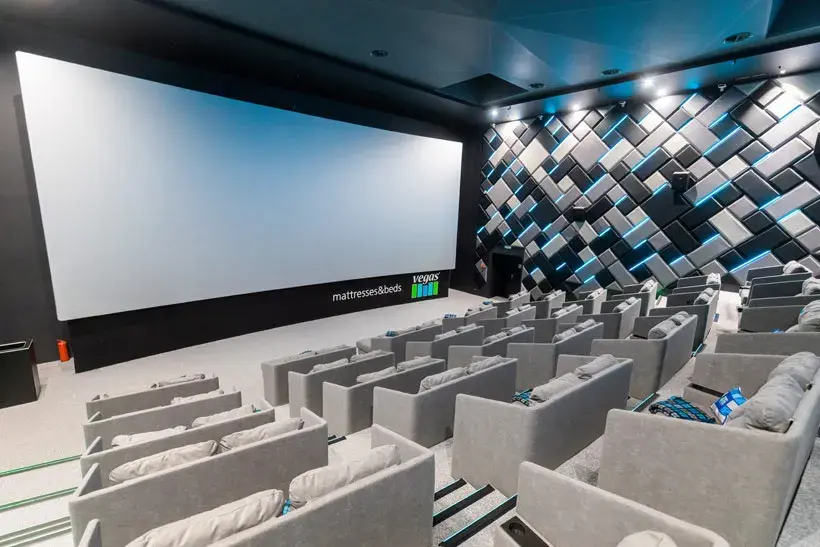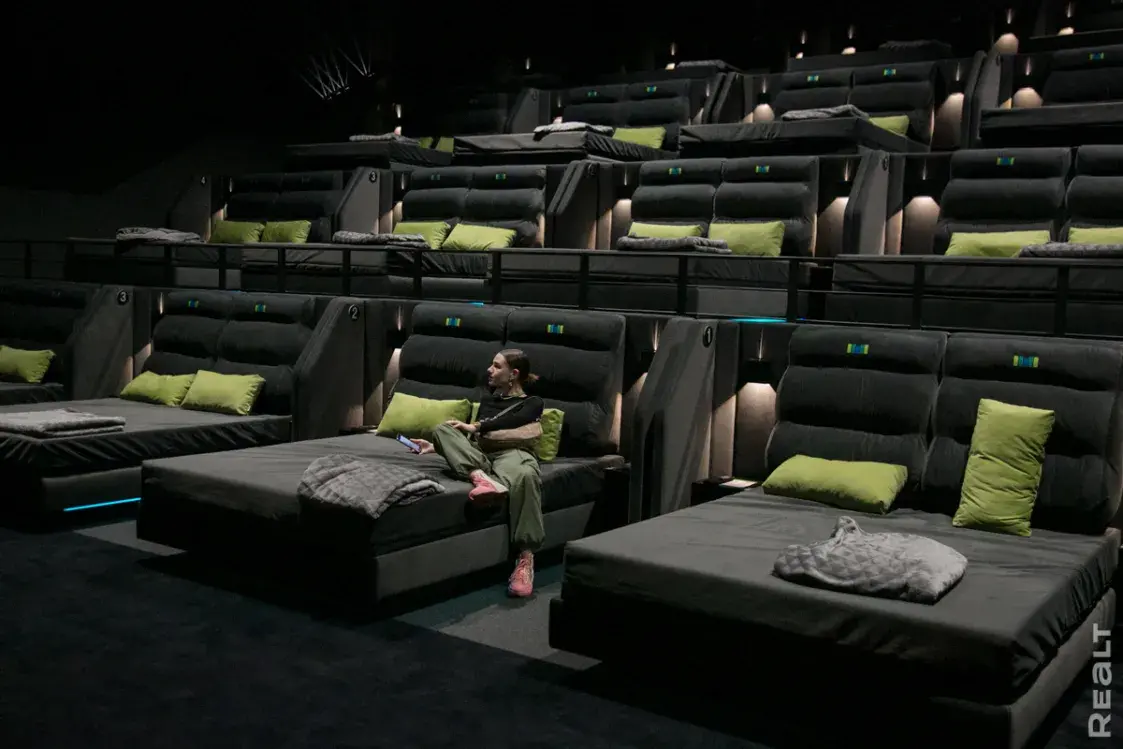Belarusian cinemas start making money on pirated movies
Since late fall, Hollywood blockbusters have gradually begun returning to Belarusian movie screens: the action film "Bullet train," the superhero comic book movies "Black Adam" and "Black Panther: Wakanda Forever." By the end of December, the schedules of public and private halls suddenly included the announcement of James Cameron's sci-fi movie "Avatar: The Path of Water," a sequel to the highest-grossing film in history, the official distribution of which began in the world on December 15.
But how was this possible when all the influential American film companies have left or temporarily suspended operations at the film market in Russia and Belarus in the last ten months since the full-scale war in Ukraine began?
Euroradio previously tried to figure out how Hollywood cinema returned to our big screens, but experts and market players had no single conclusion. Now we have found a source that exactly confirms that the Belarusian cinemas started showing pirated content.
Here's how it happened and the consequences for the country's entertainment sphere.
Time for free will

The past three years have been a test for the domestic film distribution business. In the spring of 2020, viewers stopped going to ьщмшу theaters due to the danger of contracting the coronavirus; then, the Hollywood studios began massively canceling the premiereы of blockbusters, postponing them for six months or even a year. This caused enormous losses for content distributors and movie theaters, which had almost nothing to show. And the state did not even try to support the businessmen.
"If you estimate the work of all three cinemas in Minsk, the fall in revenues is 99% compared to the end of last year," said Aliaksey Malaychuk, co-founder of the Silver Screen cinema chain, commenting on the situation to Probusiness in spring 2020.
But the crisis reached its existential peak in the spring of 2022 when major studious like Disney, Warner Brothers, Sony Pictures, Universal Pictures, and Paramount began withdrawing their business from the Russian market because of the full-scale war in Ukraine. And since our film market is an extension of the Russian market, the same happened in Belarus. So when it came to all the major releases of the spring, summer and early fall, like the comic book movies "Batman," "Morbius," "Doctor Strange in the Multiverse of Madness" etc. Belarusians could only watch them online on pirate services or legal streaming platforms.
But how did the content of foreign media corporations who had left the market reappear in Belarus? Our source from the film distribution industry, who wished to remain anonymous for security reasons, is sure that it is the implementation of the so-called parallel imports, or the demonstration of pirated copies of films in translation from the Russian new speak.

As for dubbing into the Russian language, it is happening in two countries. In Georgia, this is done by the Bravo Records studio, which used to specialize in the creation of commercials. They are dubbing the films of Warner Brothers and Universal Pictures. Interestingly, the dubbing team includes emigrated Belarusian actors and musicians: Aliaksandr Zhdanovich (former actor of Yerevan's Maxim Gorky National Theater), Maryna Shukurava (singer Rusya), Ryhor Laikau. And in Kazakhstan, there is a Movie Dalen studio that translates releases from Disney and Sony Pictures studios.
As viewers from Belarus told us, dubbed copies from these studios are now being shown in Minsk cinemas. But how did these releases from the CIS countries get to Belarus?
Our source believes that there is an unofficial intermediary, offering a new work scheme to the Belarusian cinemas. And it's definitely illegal because the distributor must get a license from the office of the rights holder:
"I received a personal license to represent the interests of the studio in the market. The company went through a six-month audit and reputation check. Now, what is there to talk about? How can it be [legal] if there's no representative of the company in the country, the company left the market and the owners of the rights didn't give permission to show it".

The cinemas would not comment on the issue of showing pirated copies of films.
The private cinema chains like Silver Screen and Skyline Cinema, the Falcone Boutique Club cinema, and the state-owned Minskkinovideoprokat were not available for commentary. Our colleagues from Onliner.by were also unable to get any clear information.
However, people who cooperate with distributors say behind the scenes that the practice of so-called "parallel imports" is already active. According to them, the so-called parallel imports have been operating in the cinemas of Belarus for about two months now. And all the cinemas are engaged in the process. The film "Avatar 2," actively promoted in Belarus, confirms this.

In the history of independent Belarus, pirated movies were shown only once - in the '90s, when the Soviet film distribution system disappeared after the collapse of the Soviet Union. Now history is repeating itself, only now cinemas are beginning to show illegal content under the guise of legal content with no appropriate legislation in place.
How will it affect the culture of cinema-going and what will be the consequences? We asked Belarusian film critics, who wished to remain anonymous, for comment.
"I think, nothing will fundamentally change for the audience - even avid cinephiles do not understand the film distribution system. The main thing is that the movie is on the big screen, and few people care how it gets there," says our first interviewee. "There are far fewer people in cinemas than before, but this is more of a consequence of the covid plus the impact of streaming, which has already taught people for 2 years that even the highest-profile premieres of the year will be immediately available online. At "Black Panther 2," for example, one of the most popular movie theaters had half of the space available at peak time, on a weekend. But it certainly wasn't because people didn't go there on principle, rather the movie-going culture itself began to erode. Even with the return of premieres in pirated form, it's still crumbs of what it used to be. In 2019, there were three movies coming out every Thursday that were just must-sees, just as many more that were just good, and five more "for leftovers." You knew you could just walk into a movie anytime and there was something interesting going on. Now you have to look for it, take an interest, find out when it's coming out abroad and when it's coming out here, which theater is showing it and which isn't. It's difficult, the viewer is too lazy to do it".














